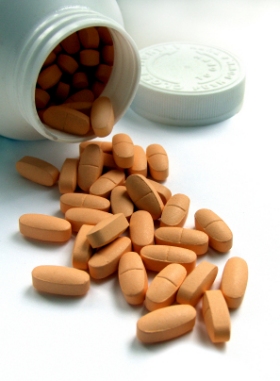01dragonslayer
Ripped
- Jacked Cash
- 537,260
1.What Is Creatine?
Creatine is derived from the amino acids glycine, arginine, and methionine. Skeletal muscle contains 95% of all creatine. The heart, brain, and testes hold the remaining 5%.2. How Does Creatine Work?
According to David Sandler, the Senior Director of Education for the National Strength and Conditioning Association (NSCA), “Creatine allows you to have a longer and larger work volume. It helps you get one more rep. Supplementation can increase phosphocreatine and creatine stores by 10 to 40%.”3. Why Does Creatine Work?
According to Jose Antonio PhD, a professor at Nova Southeastern University and the CEO of the International Society of Sports Nutrition, “Creatine serves as a fuel source for rapid exercise through increased phosocreatine (PCr) stores.”
 4. Who Should Use Creatine?
4. Who Should Use Creatine?
According to Jose Antonio PhD, a professor at Nova Southeastern University and the CEO of the International Society of Sports Nutrition, “To date, creatine is clearly the single most effective dietary supplements for enhancing gains in anaerobic performance as well as increasing lean body mass and muscle fiber size.” Jose Antonio PhD.So, put simply: everyone should use creatine!
5. How To Use Creatine - How Much Creatine Should I Take?
Take 3-6 grams of creatine monohydrate daily for maintenance.6. Does Creatine Help You Build Muscle?
Yes! Specifically, research has shown that creatine offers these benefits:- Increases fat-free mass.
- Improves maximal strength (as measured by 1RM bench press).
- Improve muscular endurance.
- Increases anaerobic power and performance (shown in many activities, including continuous jumping, jump squats, knee extensions, and repeated sprints by soccer players).
7. Does Creatine Help You Lose Fat?
Absolutely! Since we know that creatine helps you gain and retain metabolically active lean muscle tissue: Put simply, the more muscle you have on your body, the harder you can work in the weight room, and the more calories you can burn both during and after your training sessions.Plus, creatine also helps elevate your metabolism more directly, through its hydration properties. "A well-hydrated cell tends to be more metabolic," According to Jose Antonio PhD, a professor at Nova Southeastern University and the CEO of the International Society of Sports Nutrition.
8. How To Load Creatine?
For the fastest possible benefits, take 10 to 20 grams daily for a period of 7 to 14 days.9. When And Why To Load Creatine?
You don’t “need” to load creatine, as it will work just a well for you after taking it consistently for about 4 weeks. But, when you want fast results, like if you have a completion coming up with a weeks – 2-weeks time frame and you want to maximize your performance.
10. How To Cycle Creatine?
Most people don’t have to worry about this issue. Continual use offers continual performance benefits.11. Does Creatine Make You Retain Water?
Creatine does help your cells retain water, which is good for performance. But it does give you a higher body weight.So, fighters and other weight-class athletes may need to cycle off creatine from time to time. It’s recommend to cycle off creatine 6 weeks before a weigh-in.
12. How Much Water To Drink While Using Creatine?
According to Jose Antonio PhD, “The literature has 4 ounces of water for every 3 g of creatine...give or take!”13. What Is The Best Type Of Creatine?
Alan Aragon MS (nutritional editor to Men’s Health and consultant to the Los Angeles Lakers, Los Angeles Kings, and Anaheim Mighty Ducks) states, “Creatine monohydrate is definitely the way to go,” Alan Aragon says. “Not only is it less expensive than other forms, it’s actually been shown to have better bioavailability.”14. Is Creatine Safe?
According to Jose Antonio PhD, "creatine is perhaps THE most studied ergogenic aid in history. Plus, the science clearly shows that there are no harmful side effects of creatine supplementation."15. Does Creatine Cause Cramps?
No! Jose Antonio PhD describes another study performed during one season of NCAA Division IA football training and competition, “it was discovered that creatine users had significantly less cramping; heat illness or dehydration; muscle tightness; muscle strains; and total injuries than nonusers. Thus, even for athletes who are well-trained, it is clear that regular creatine consumption does not cause harm, and in fact may have a protective effect against certain exercise-related issues.”16. Is Creatine Safe For Teenagers?
Yes! It’s 100% safe! In fact, creatine has been shown in the research to improve strength and performance in teenagers who were already in shape and highly trained for their sport.17. Is Creatine Safe For Women?
If you’ve read any of the answers above, you now that know creatine is 100% safe for everyone. And, you also now know that it’s scientifically proven to work for everyone.That said, women looking to get stronger and build a leaner, more athletic looking body should take creatine.









